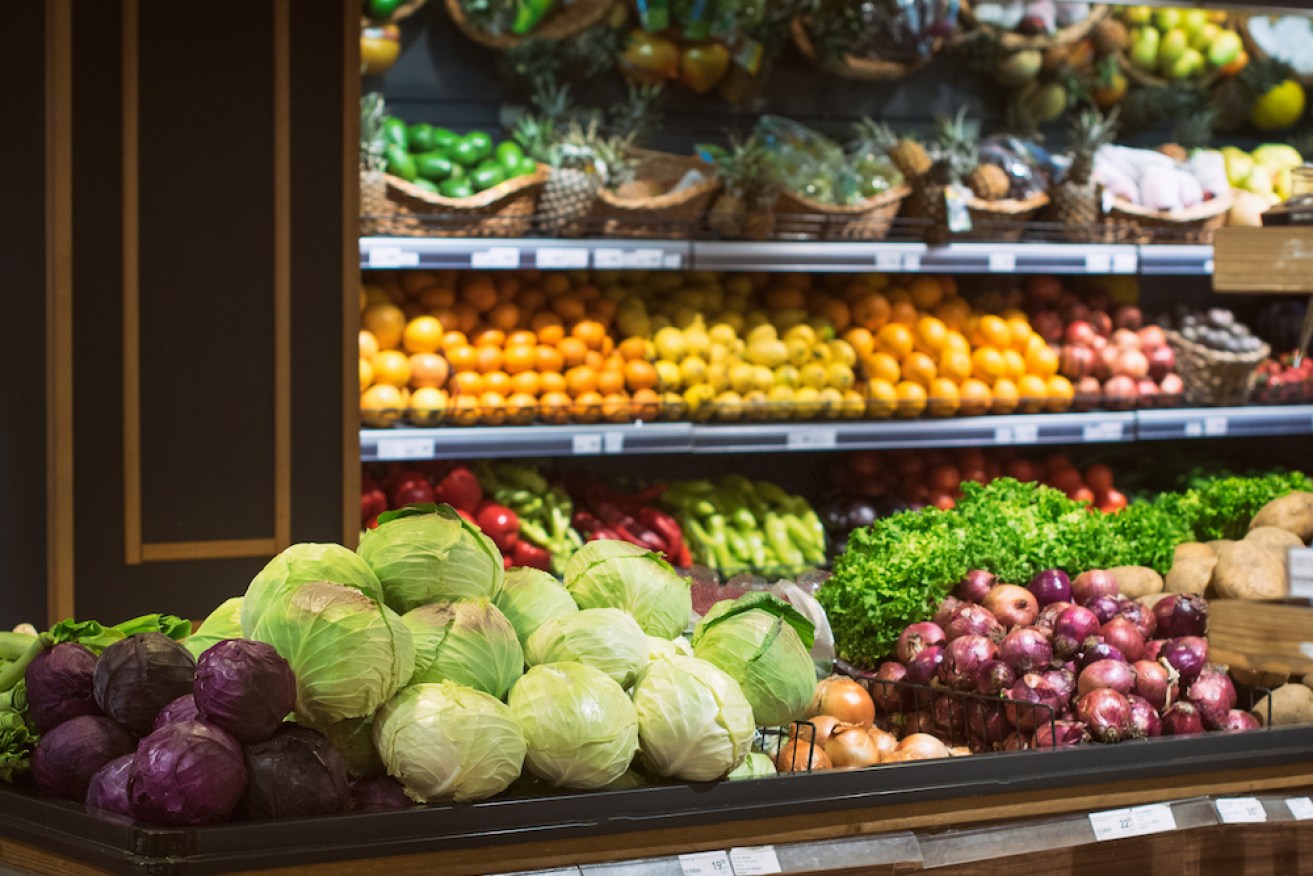Why we throw away tonnes of perfectly fine but ‘unaesthetic’ produce


A community group member accused supermarkets of throwing out consumable foods. Photo: Getty Photo: Getty
Did you know that making a frittata could help the planet? One NSW MP thinks so.
Independent member for Sydney Alex Greenwich recently chaired an inquiry into food production, supply and waste in NSW.
Speaking to The New Daily, Mr Greenwich revealed the best “hack” he had from the inquiry made sure he used every vegetable left in his fridge by the end of the week.
He throws them all together and whips up a frittata.
“Just by that simple action, people will have a meaningful impact in reducing waste and therefore reducing emissions,” he said.
While the state government is expected to respond to the inquiry in May, there were some big take aways from the report.
Not only is food waste bad for the environment, it’s also a shocking waste that 312kg of food per person per year is thrown out – while people go hungry.
One-third of food waste in NSW comes from the home, and it exists at every part of the supply chain, which is why the report details several sweeping recommendations to combat it.
Aesthetic standards cause waste
One of the recommendations made was limiting the ability of major retailers to impose aesthetic standards on produce.
NSW Farmers told the inquiry that flexibility with product specifications relating to “aesthetic concerns as opposed to food safety” could reduce food waste across the supply chain.
“NSW Farmers explained that retailers and processors have specifications for fresh produce, which play a part in ensuring that food is fit for consumption,” the report says.
“However, they noted that imposing largely cosmetic specifications, such as product weight, shape, size and imperfections, contributes substantially to food waste in the supply chain.”
It also noted that aesthetic standards led to a “significant” amount of edible produce being “ploughed back into the paddock”.
“This is a waste of farmers’ resources and reduces their incomes,” the report states.
“We recommend that supermarkets’ ability to require aesthetic standards for produce should be limited so that less produce is wasted.”

Farmers say retailers reject produce purely for aesthetic reasons. Photo: Getty
Farmers Pick was born after co-founders Josh Ball and Josh Brooks-Duncan noticed the produce at their local farmers market was different to that on the shelves at a supermarket.
The company rescues non-aesthetic produce and delivers it to customers.
“Often when it comes to the produce we source from farms, it looks exactly the same as what you’d see at the supermarket, however it is still rejected due to unrealistic standards,” the co-founders told The New Daily.
They said they have witnessed produce being too big, but usually it is because of minor superficial blemishes.
Mr Greenwich said he believes it should be up to the supermarket to take care of any food they don’t want.
“It shouldn’t be up to the farmer to have to deal with the waste cost and impacts, and the increased cost of that then leads to fruit and veg in our supermarkets,” he said.
Tweet from @MsGanoosh
What are supermarkets doing?
A Coles spokesperson said the supermarket works with suppliers to increase overall crop yields by using produce that would not typically be sold in stores.
Coles Kitchen Zucchini Noodles, sweet potato noodles, sweet potato chips, and broccoli and cauliflower rice are all made from such products.
“Coles works closely with industry partners, suppliers and customers to reduce as much food waste as possible,” the spokesperson said.
A Woolworths spokesperson said it works closely with growers to ensure it is putting out the “right volume of fresh fruit and vegetables” to sustainably meet consumers’ demand.
“Our produce requirements are adaptable and respond to the quantity and availability of fruit and vegetables in the market, which is affected by seasonality, supply and weather,” the spokesperson said.
“This allows us to work with growers to meet customer demand, while also reducing food waste from unsold fruit and veg in our stores – and avoiding unnecessary food miles and emissions associated with transporting it.”
Both supermarkets have ranges where people can buy less than perfect produce, with Coles’ ‘I’m Perfect’ range and Woolworths’ ‘Odd Bunch’.
Coles donates unsold, edible food to food rescue organisations like Secondbite and FoodBank, while Woolworths partners with FoodBank, OzHarvest and Fare Share.

Coles and Woolworths say there are measures in place to reduce food waste. Photo: Getty
What can we do?
Just because a fruit or vegetable doesn’t look good, that doesn’t mean it is inedible.
“There is absolutely nothing wrong with food that isn’t aesthetic – it might be funny-looking produce with different shapes and sizes, but that does not affect the freshness and flavour,” Mr Ball said.
“It tastes and cooks up exactly the same as any other fruit and vegetable would.”
The NSW inquiry recommended the Department of Planning and Environment develop and implement a “comprehensive consumer education campaign”.
The campaign should be designed to encourage households to reduce and prevent food waste.
Because children and young people can positively influence their families to change their habits, the report also recommended campaigning on social media and implementing school-based education programs.
The state government can also do more regarding food waste and food insecurity.
“NSW has no central food policy, so there’s no ownership of the issue of food – making sure people in need are getting safe, nutritious food, and making sure that you know that we’re growing food in a sustainable way that we’re supporting our farmers through it,” Mr Greenwich said.
“And most importantly, that perfectly good food is not going to waste.”
Mr Ball and Mr Brooks-Duncan also noted this isn’t an issue specific to NSW, but all of Australia.
“This is a national issue and there are initiatives in place across Australia,” they said.
“Food waste accounts for approximately 3 per cent of Australia’s annual greenhouse gas emissions.”








